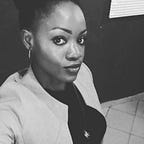HOW TO BECOME A BRAND
A brand simply is the impression a company, product, or individual creates which is “experienced” by customers, and affects their “perception” of the company, its products, and services.
Whether you are a small business or not, it is not enough to think you have what it takes to scale a business when you barely understand what it takes to start one or even build a brand.
One mistake you are making right now is, you are either thinking your fat funds (money in the bank) is very fat that customer acquisition will be made easy through ad buying or you are thinking every problem is a problem and customers will be swept off their feet with your product idea.
Why not start from the basics!
How much do you know about the world of business?
1. “We built a company before we realized that we’re a startup”. Annan, Founder of KuBitX
KuBitX is a crypto startup that failed. After seeking answers for their failure, they realized that a mere not knowing “who they are” was part of the mistake that led to their shut down.
Are you a startup or a company? What is the difference by the way?
A startup is a temporary organization in search of scalable, repeatable and profitable business model.
It is a venture still at the learning stage whose primary goal is to find a workable business model. A startup is still trying to find out more about what they are selling and who they are selling to.
A company has a business model and is already executing one.
A company already have a market and has higher potentials for brand building.
What then about becoming a brand?
Building a brand is all about creating experience that people want to sleep on.
You don’t want to build a business that people will find it difficult to trust or easy to forget. Monitoring how you are relating with existing customers, potential customers and their feelings towards you, “must” form part of your strategy for growth.
- What does your adverts say about you?
- What does your salesperson know about the customer that just interacted with your product?
- Do you recognize the limits of your product and innovate or better still, stretch it’s strength?
2. Don’t assume customers will always want to pay for your “innovative product”.
They may just not like it. Don’t force them to like it, instead, research more and find out if what you call a solution is just a mere joke and waste of time for them. If so, stop building and start iterating.
Spend more time in product research than product development. Invest more in consumers' behavior and build with data that matters.
- Do you test your product feasibility before launch?
- How much do you know about your product and the market it is entering?
- Is the excitement about your product based on what consumers think or what you think?
3. Choose a team whose traits and skills will maximize your chances of success.
Out-sourcing your product development may seem cheaper depending on the situation but not for a long time.
Having an in-house team is cost-effective because they understand your struggles, know firsthand where the problems are and can craft creative money-saving solutions that will fix and get you to where you want to be. Just with the right team, your dream will work.
Learn more ABOUT ME, CONNECT and JOIN MY NEWSLETTER
